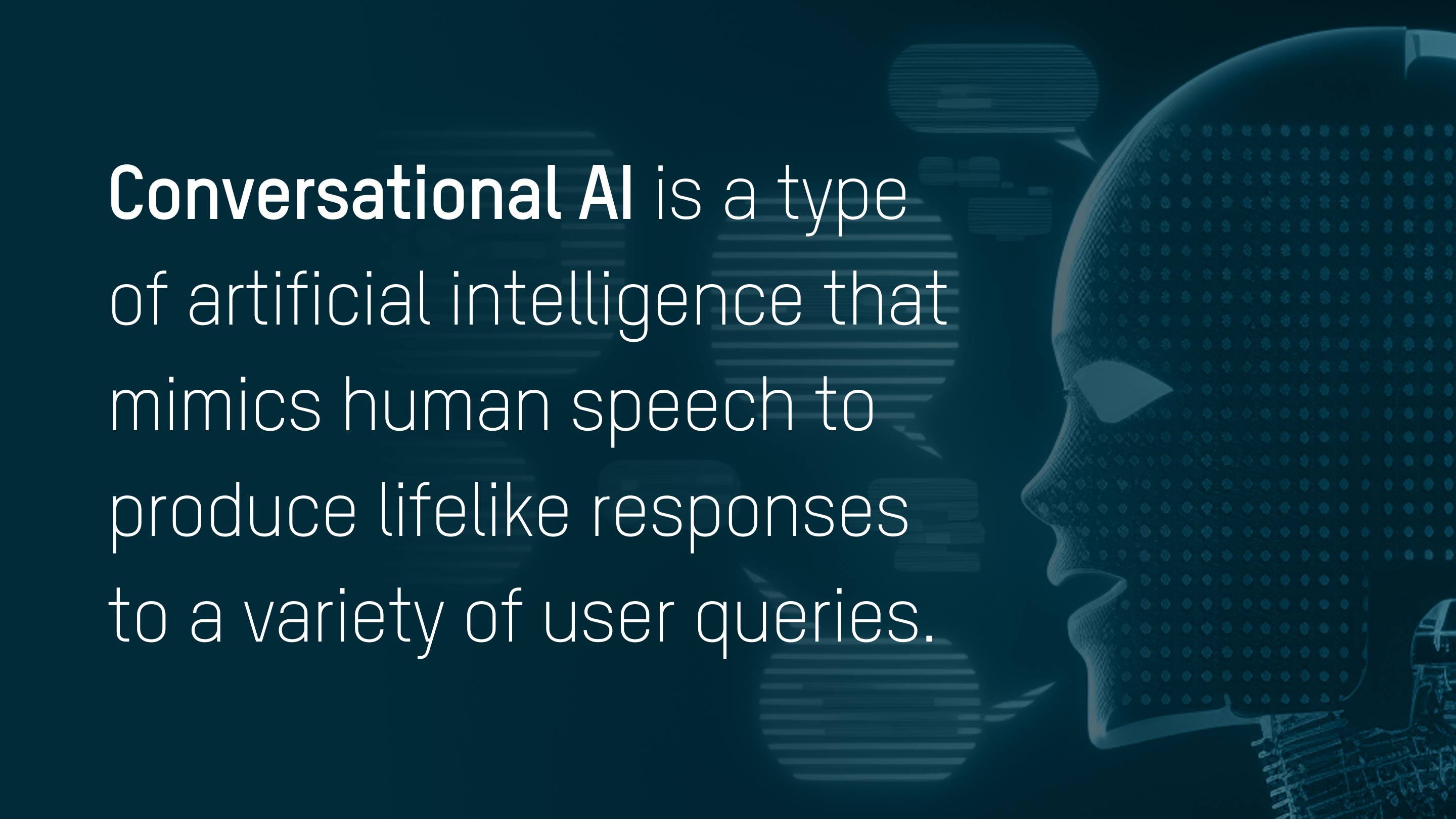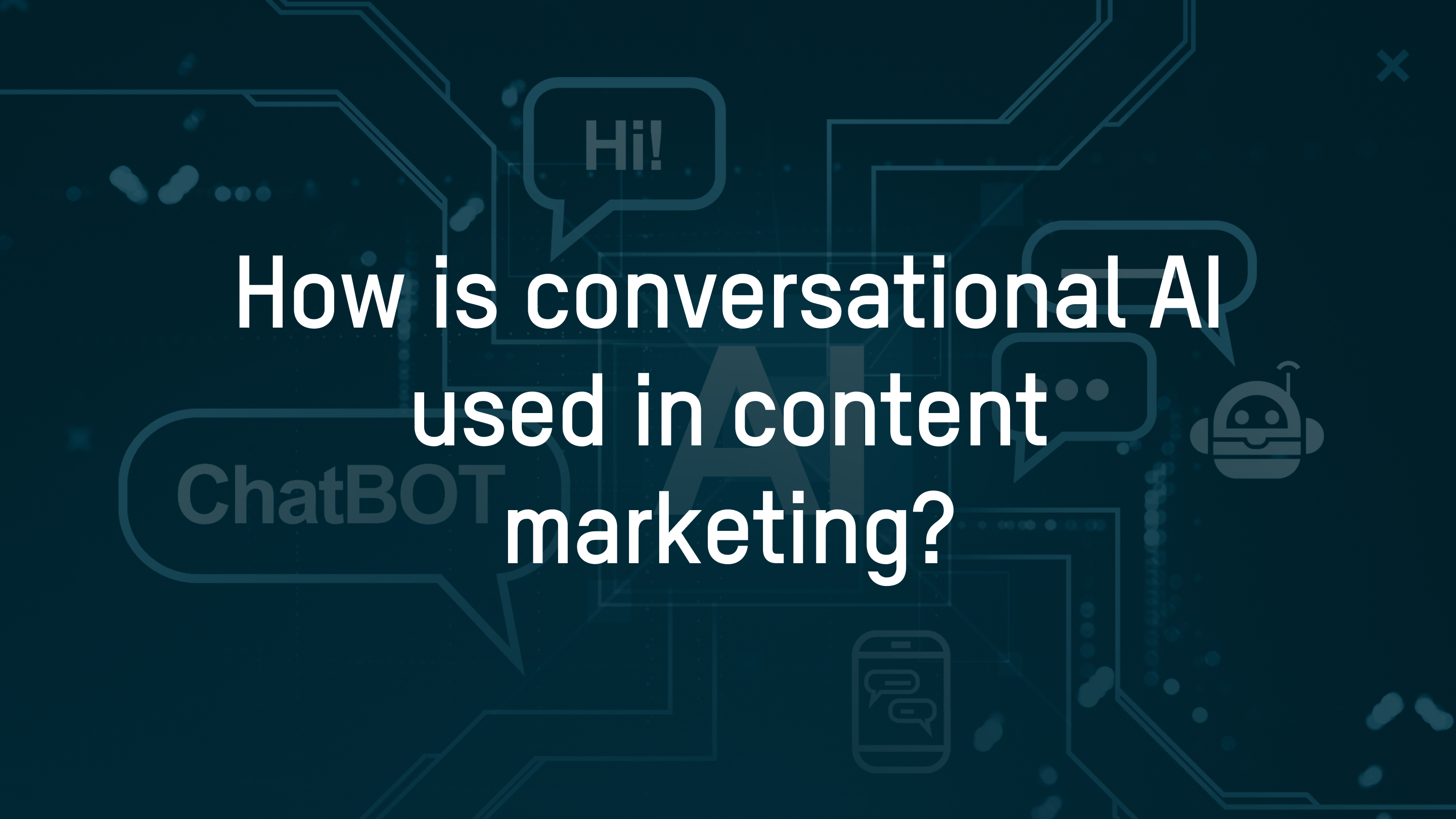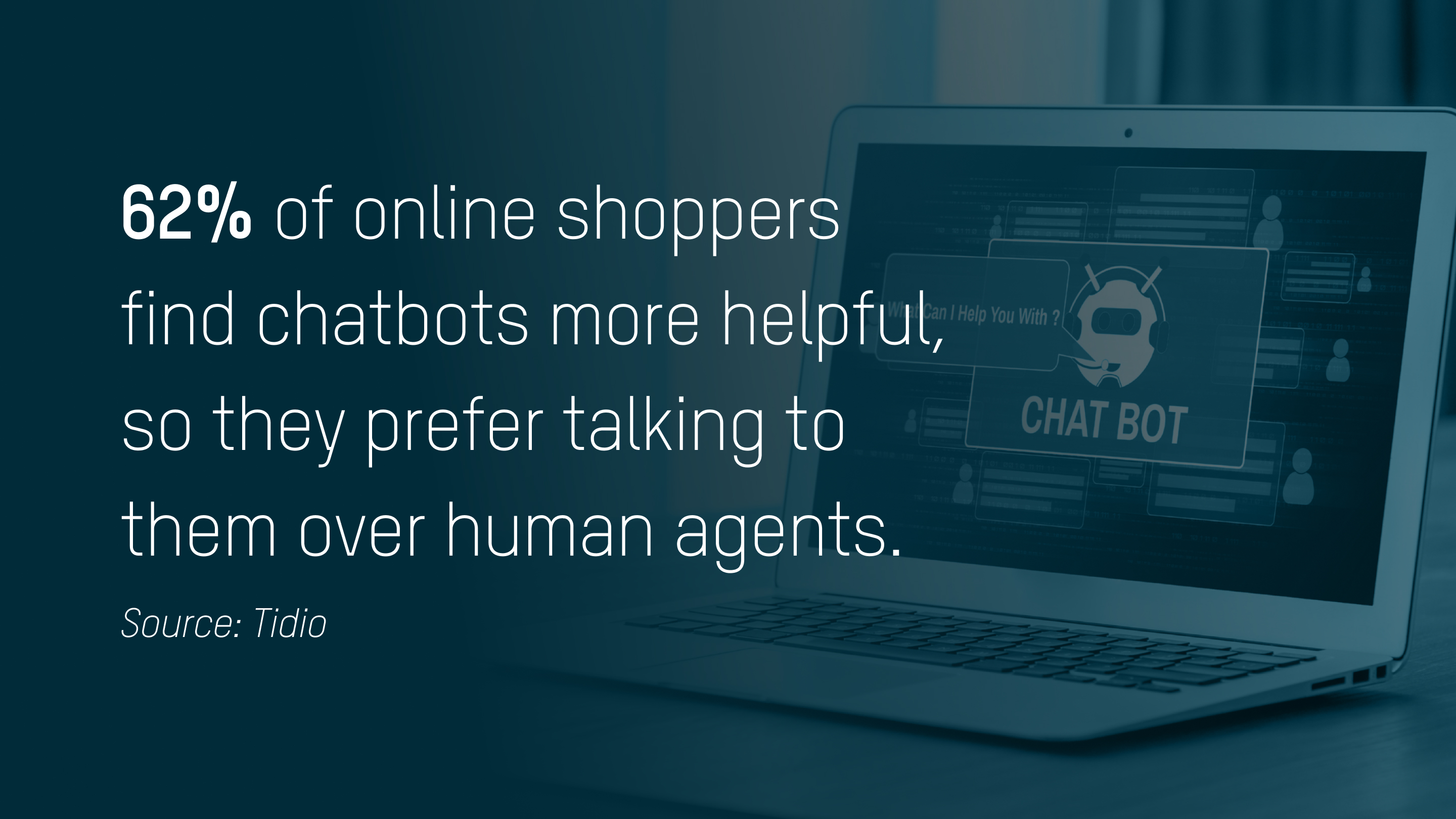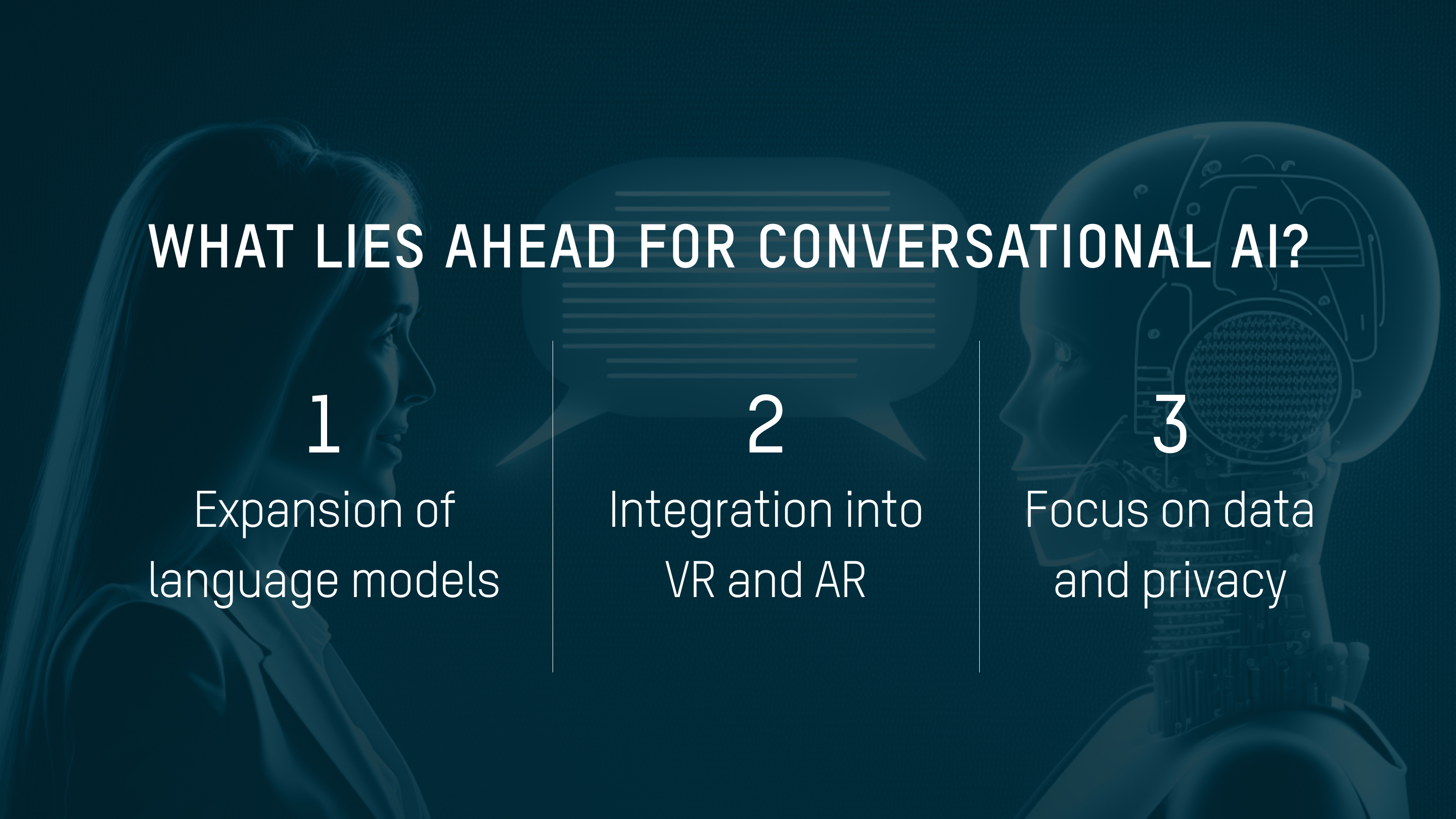Before the rise of artificial intelligence (AI) in marketing, brands predominantly engaged with consumers through static content—websites, display ads, and emails—where interactions remained largely one-sided, offering limited opportunities for consumers to engage in active, as well as meaningful, dialogue with brands.
Thanks to conversational AI, brand-consumer conversations are now two-sided, allowing an open exchange of ideas and sentiments. These exchanges happen in real-time, ultimately transforming how customers and brands interact with one another and the world at large.
In this article, we’ll discuss the impact of conversational AI on content marketing, uncover the industry challenges and offer insights into what lies ahead for this promising technology.
Definition of Conversational AI

Conversational AI uses a blend of machine learning, natural language processing (NLP), and natural language generation (NLG) algorithms to mimic human conversation. By examining texts and extracting context, conversational AI is able to mimic human speech patterns, enabling systems and computers to generate human-like responses to any user input, whether it's a question or command.
Examples of Conversational AI in Content Marketing

From chatbots guiding customers through websites to content generators crafting written content, conversational AI is being integrated into various facets of content marketing.
Customer Support Chatbots
Did you know that those ubiquitous chatbots you typically engage with are powered by conversational AI? Website and social media chatbots use conversational AI to accurately and promptly respond to customer inquiries and concerns, eliminating the need for human agents.
Powered by a combination of artificial intelligence algorithms, AI chatbots can address a variety of concerns around the clock—even in multiple languages—which not only removes the burden of manual support but also ensures seamless customer assistance for businesses aiming to improve their operational efficiency and customer service.
Personalized Content Delivery
Conversational AI also takes content delivery to the next level. Delivering digital content to users via conversational channels like interactive ads, messaging apps, and voice or virtual assistants has become more seamless, fluid, and personalized due to conversational AI.
Harnessing the power of conversational AI, these channels have the ability to deliver content uniquely customized to users' interests and preferences, thereby enhancing personalization and boosting engagement within these platforms.
Customer Feedback Collection
Similar to customer support chatbots, conversational AI can help in collecting, analyzing, and organizing customer feedback, providing businesses with valuable insights to inform their strategies.
Apart from that, conversational AI adds a natural and interactive touch to the entire process by using human-like language when communicating with customers. Beyond collecting input, conversational AI can also ask relevant follow-up questions regarding customer feedback, much like humans.
Voice Search Optimization
With voice-powered gadgets on the rise, it’s worth noting that conversational AI plays a pivotal role in optimizing voice search results. By using natural language processing and machine learning, conversational AI has the capacity to analyze spoken language and identify user intent within search queries, delivering relevant suggestions within voice search results.
Since it’s trained on vast volumes of real-world data, conversational AI can comprehend different language patterns to serve up the most relevant results to answer users' queries.
Automated Email Campaigns
Conversational AI also plays a role in enhancing email campaigns by boosting their degree of personalization. It removes the need to segment contact lists and deploy emails manually.
Conversational AI can analyze user behavior and past customer interactions to help businesses organize and deploy their emails to boost engagement and conversion. Additionally, conversational AI can optimize send times and frequency of communications to maximize the impact of each email campaign.
Benefits of Conversational AI in Content Marketing
Embracing conversational AI unlocks a treasure trove of content marketing benefits, changing how brands communicate with their customers. Here are three advantages of conversational AI:
Increased Business Revenue
With its high degree of personalization and automation, conversational AI platforms play a critical role in reinforcing businesses’ sales efforts. In fact, incorporating conversational AI, specifically chatbots, into operational frameworks can lead to an impressive 67% boost in sales.

These artificial intelligence tools are great at quickly addressing queries and guiding customers toward successful purchases, aiding in closing sales. Because of their assistance in the purchase process, 62% of customers actually prefer chatting with chatbots over human agents.
Enhanced User Experience
Close to 80% of consumers report positive experiences with conversational AI platforms. Much of this can be attributed to conversational AI’s ability to automate business processes and significantly shorten response times. Aside from this, its capacity to adapt to varying consumer preferences leads to better customer experiences.
Through conversational AI, digital interactions become more seamless and intuitive, boosting customer satisfaction, trust, and loyalty. This can only mean increased revenue for businesses in the long run.
Reduced Costs and Resources
By automating repetitive tasks through conversational AI, human resources can be reallocated to more strategic roles, including developing AI content strategies, analyzing data insights, and nurturing client relationships. Besides minimizing the need for an extra workforce, integrating conversational AI can potentially reduce business costs by 15% to 70%.
Certainly, understanding how to integrate conversational AI software within business frameworks can unlock a plethora of benefits, particularly in enhancing digital content marketing strategies. But what can we anticipate in the near future regarding this promising innovation?
Future of Conversational AI
In the upcoming years, we can expect significant progress in conversational AI, particularly in the realm of content marketing, with the majority aimed at enhancing this technology.

While conversational AI already has the ability to understand multiple languages, its natural language models are expected to expand even further in the coming years to cater to a wider global audience. It’s worth noting that stakeholders of this technology don’t just seek to overcome language barriers but also to enhance conversational AI platforms’ understanding of cultural nuances for improved customer support.
In addition, conversational AI is poised to make its presence felt in technology, particularly in virtual reality (VR) and augmented reality (AR). For one, the integration of artificial intelligence instructors or coaches is seen as a promising opportunity for conversational AI in the tech world. The use of conversational AI in VR and AR environments is only expected to make virtual experiences more lifelike and interactive for users in the near future.
Lastly, as conversational AI continues to grow and expand, concerns about privacy will also rise, much like other evolving technologies. Fortunately, efforts are underway to enhance the safety and accountability of artificial intelligence, especially when handling customer data. Ongoing research is focused on addressing these ethical issues to ensure that conversational AI is used as intended.



